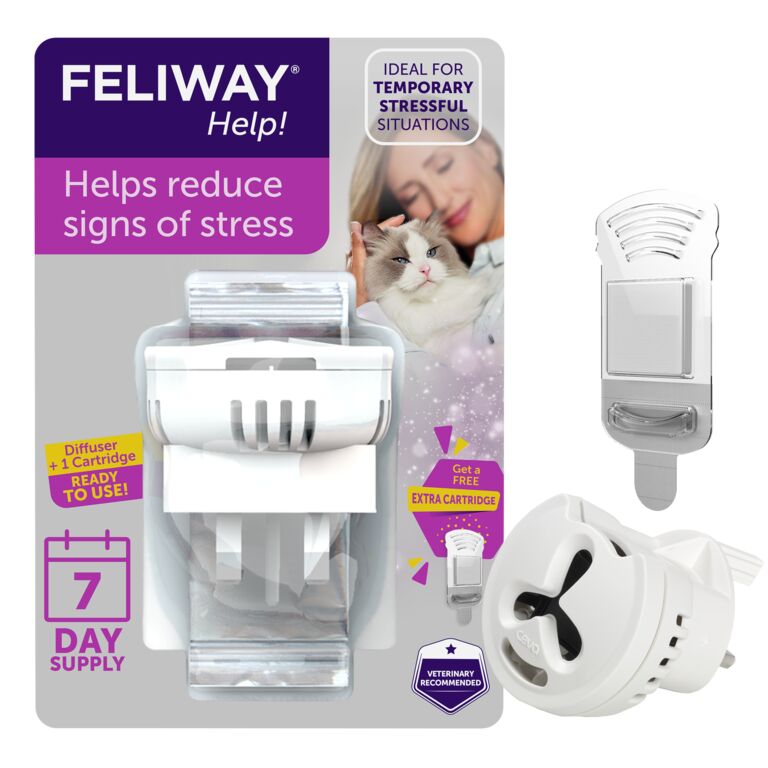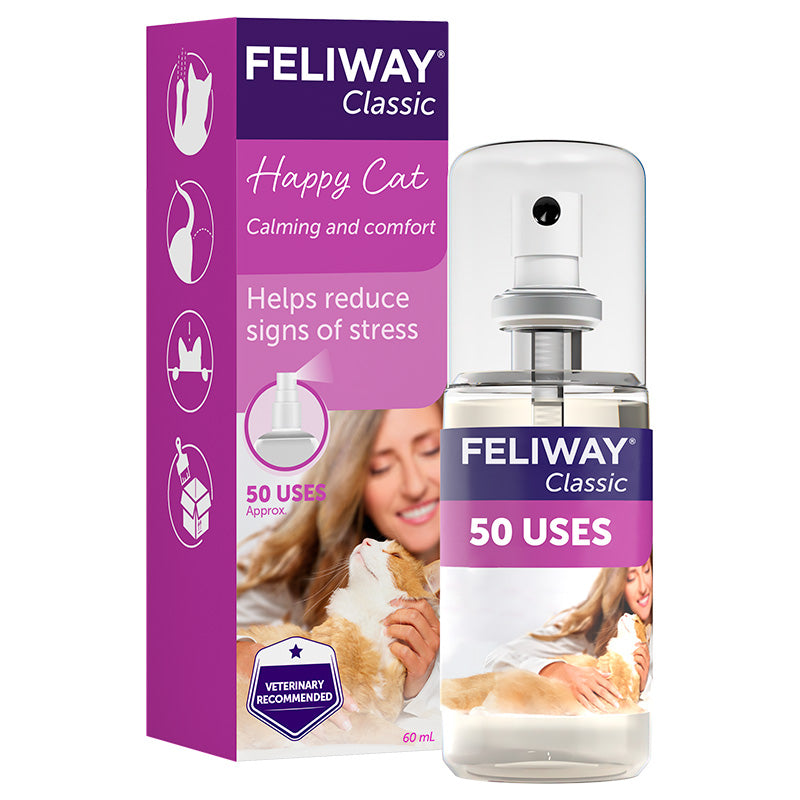
5 Tips to Stroke Your Cat Like a Pro!
Some cats like nothing more than to curl up on your lap being stroked and, let's face it, it's a very pleasurable experience for you too! Lovely soft fur and a gentle purr can make you both feel calm and relaxed.
But not all cats like being stroked, so you shouldn't take it personally if your kitty prefers to curl up on another chair rather than sit on your lap! Cats can be independent and they can't always be persuaded to do things that they don't want to do, but they may just prefer to be stroked in a different way, the trick is to find out where their soft spot is.
5 Tips to Stroke your Cat like a Pro
1. Learn how to recognise when your cat is receptive to attention and would probably like to be stroked.- Give them the choice and let them be in control, always.
- Offer your hand to your cat and allow them to approach you, they can choose whether they interact with you or not.
- If they are doing something else (e.g. eating) now is not the time to touch them.
- Remember that if they are in their safe place, leave them there undisturbed.
- If they rub against your hand, they are happy to interact‚ if they don't, don't start stroking them
- Take account of their body language and check for signs that it's time to stop.
- Some cats can become over-aroused by stroking or find the touch overwhelming and may start to bite ‚ - it's time to stop.
- Use soft gentle strokes in the same direction as their fur
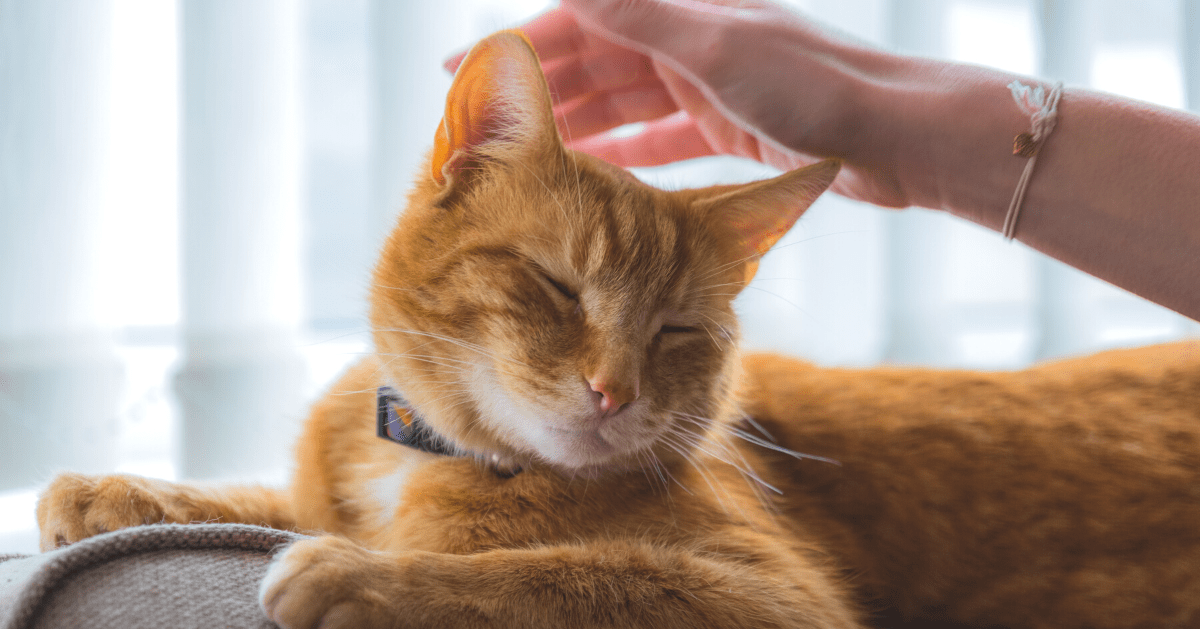
2. Understand that, as a general rule, there are no-go places when it comes to stroking your cat:
- Their legs and paws are a definite 'don't even think about it!'
- Even when they're lying on their back, it's not an invitation for a tummy rub.
- Leave their tail alone! There are too many sensitive areas in this vicinity that they don't want you to touch, and they use their tails to let you know how they feel.
3. So, that leaves your cat's head and along their back! There may be a number of reasons why cats are partial to being stroked on their head and along their back:
- Stroking and scratching their head might remind them of being groomed by their mother when they were young.
- It's a place they can't reach very well by themselves to either lick or scratch.
- When cats groom themselves, they use their paws to lick and clean their head and face. When you stroke their head, you are mimicking this and they love it!
- Most of a cat's scent glands are around their head, so by allowing you to stroke around their head, they are marking you as part of their family group ‚ - that's an honour and shows they love you!
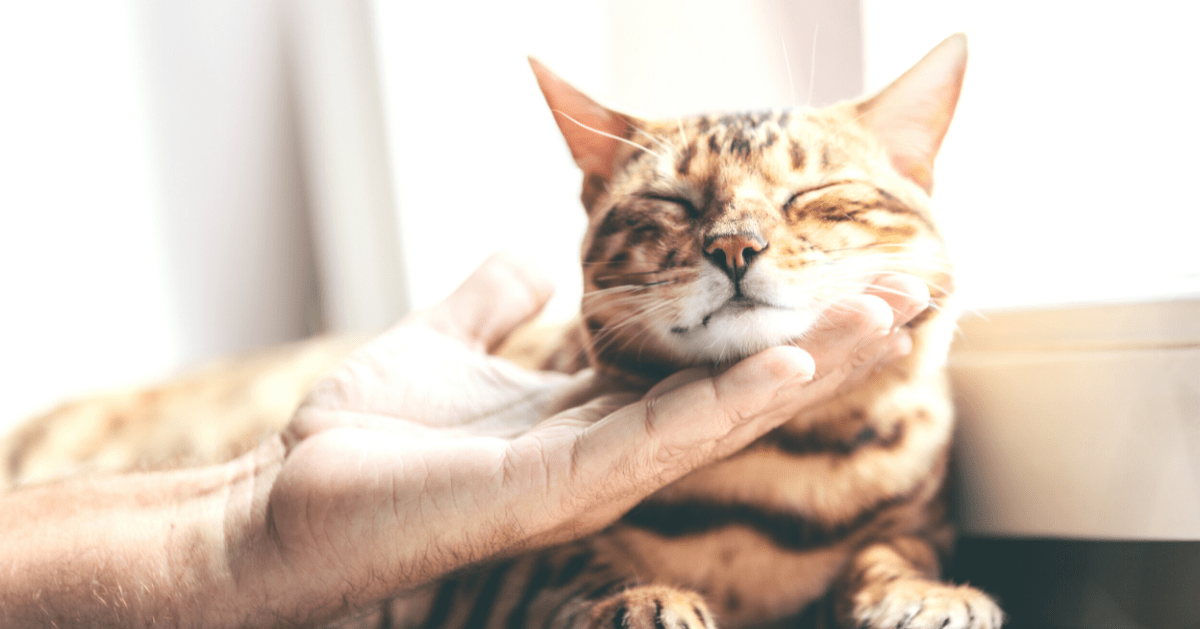
4. You'll know when your cat is lapping up the attention when they are:
- Purring
- Kneading
- Rubbing against you
- Moving their head to encourage repeat stroking (a nudge!)
- No body tension
- Vertical tail
5. Recognise when your cat is feeling uncomfortable and know when to stop.
- If you pause for a few seconds when stroking your cat and they reinitiate contact, they're obviously saying 'more please'. However, if they don't rub against you, they have probably had enough for now, so it's time to stop.
- tail swishing
- skin twitching over the back
- flattening of the ears
- tenseness
- dilated pupils
- low growl
- walking away and lying down.
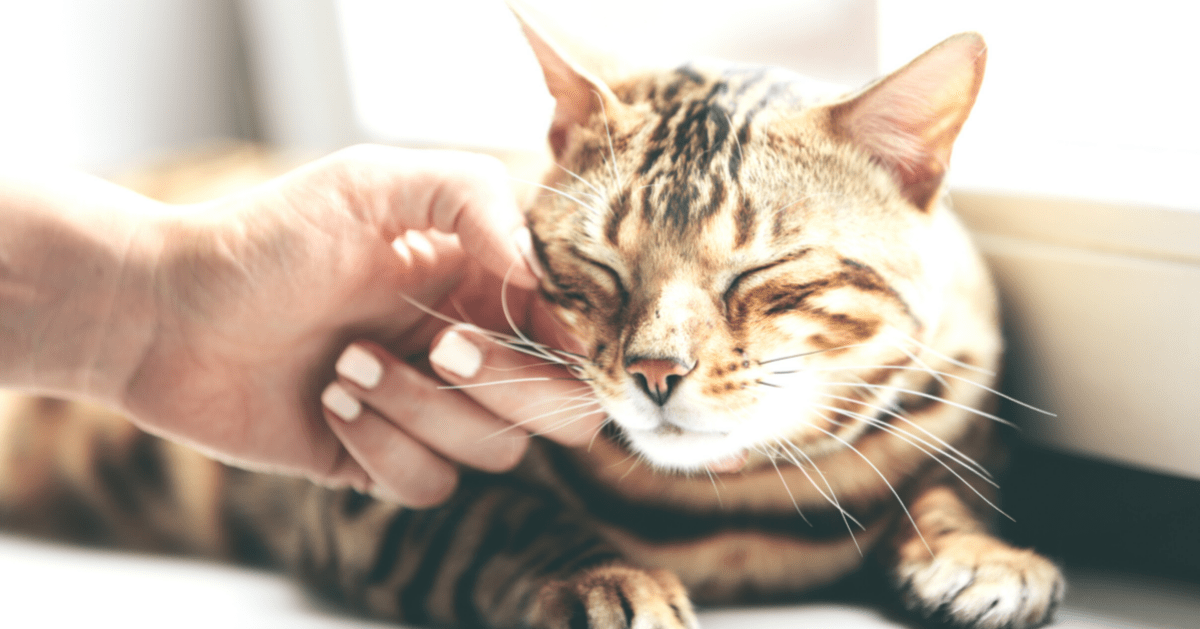
Kittens that have been well handled and socialised with humans from a young age are usually more likely to enjoy handling. Your cat is more likely to be receptive to being stroked if they are calm and relaxed; using FELIWAY Optimum will help you create an environment where your cat feels serene and happy!













